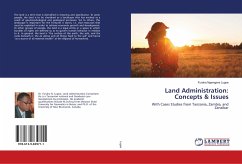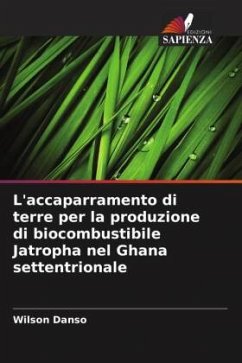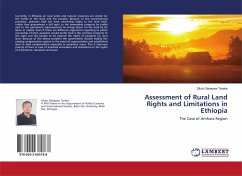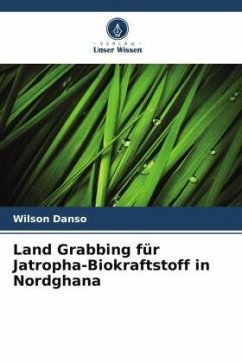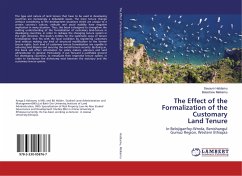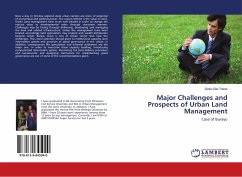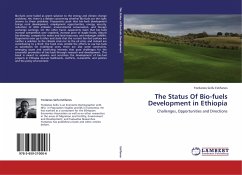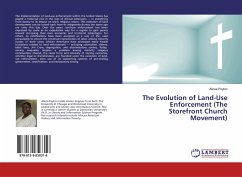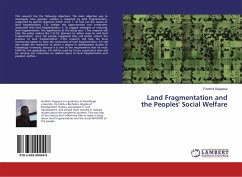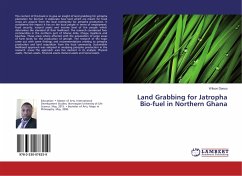
Land Grabbing for Jatropha Bio-fuel in Northern Ghana
Versandkostenfrei!
Versandfertig in 6-10 Tagen
24,99 €
inkl. MwSt.

PAYBACK Punkte
12 °P sammeln!
The content of this book is to give an insight of land grabbing for jatropha plantation for bio-fuel. It elaborate how land which are meant for food crops are acquire from the local community for jatropha production. It considered the impact it has on the local people in terms of employment, food security, natural assets and income level of the people which determines the standard of their livelihood. The research considered four communities in the northern part of Ghana; Jimle, Chegu, Kpalkore and kpachaa. These areas where affected with the acquisistion of large areas of farm lands for the p...
The content of this book is to give an insight of land grabbing for jatropha plantation for bio-fuel. It elaborate how land which are meant for food crops are acquire from the local community for jatropha production. It considered the impact it has on the local people in terms of employment, food security, natural assets and income level of the people which determines the standard of their livelihood. The research considered four communities in the northern part of Ghana; Jimle, Chegu, Kpalkore and kpachaa. These areas where affected with the acquisistion of large areas of farm lands for the production of jatroph. The research of the topic came out with some findings and recommendations relating to jatropha production and land acquisition from the local community. Sustainable livelihood approach was adopted in analysing jatropha production in the research areas. The approach uses five element in its analysis; Physical assets, Human assets, Financial assets, Natural assets and Social assets.




